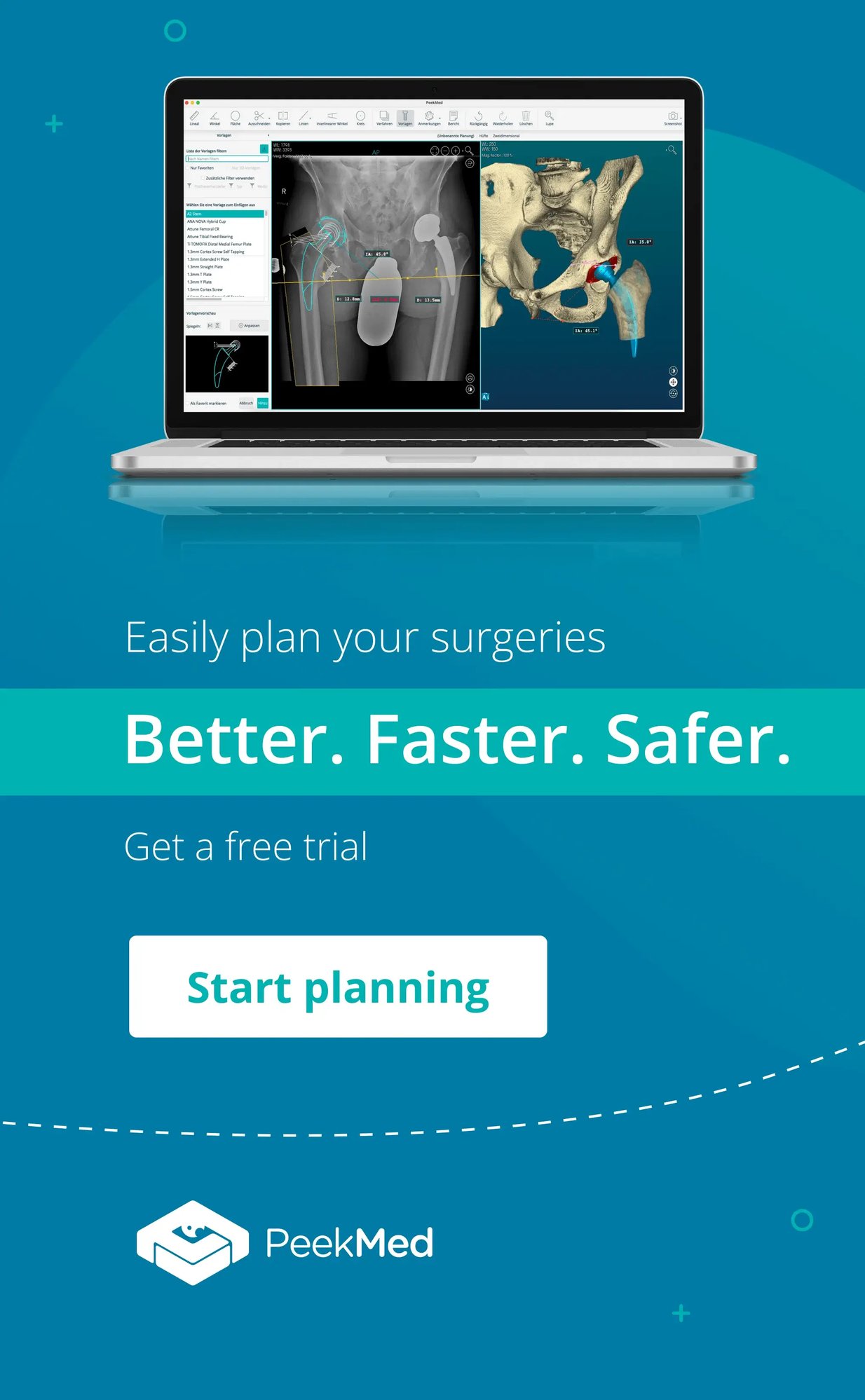PeekMed
In an era where information is king, big data integration is revolutionizing how orthopedic doctors and surgeons diagnose, treat, and manage musculoskeletal conditions.
This article delves into the world of Big Data in Orthopedics, showcasing specific examples of how this technology is enhancing patient care and reshaping the field.
The Role of Big Data in Orthopedics:
Enhanced Diagnosis
The power of Big Data lies in its ability to provide insights and patterns that were previously hidden, allowing orthopedic professionals to make more informed decisions:
Early Detection of Orthopedic Conditions
Big Data analytics enables orthopedic specialists to identify conditions at earlier stages. For instance, predictive algorithms can analyze patient data to detect the early signs of osteoporosis, osteoarthritis, or other musculoskeletal disorders, allowing for timely intervention and personalized treatment plans.
Risk Assessment
By analyzing a patient's medical history, lifestyle factors, and genetic predisposition, Big Data can help calculate the risk of developing orthopedic conditions. This information allows orthopedic doctors to offer preventative measures, such as exercise recommendations or dietary changes, to reduce the risk of future musculoskeletal issues.
Genomic Profiling
With the aid of Big Data, orthopedic professionals can delve into genetic data to identify patients at risk of developing certain musculoskeletal conditions. A patient's genetic predisposition to osteoarthritis, for example, can guide preventive measures and early interventions.
Pre-Operative Planning and Hospital Management
Implant Selection
Big Data analysis of historical data can help surgeons select the most appropriate implants based on a patient's unique anatomy and needs. In collaboration with device manufacturers, big data can track the performance of orthopedic implants post-implantation. This data can help identify the longevity and efficacy of specific implants, allowing orthopedic doctors to make informed choices for their patients.
Medical Imaging
Advanced medical imaging techniques, such as MRI and CT scans, have made it possible to identify subtle orthopedic anomalies that were previously difficult to detect. For example, small cartilage defects or microfractures can be detected at an early stage, allowing for timely intervention and preventing the progression of conditions like osteoarthritis.
Inventory Management
Hospitals can use Big Data to monitor and manage their inventory of orthopedic implants effectively. Real-time data analysis ensures that necessary implants are always in stock, minimizing delays in surgeries and ensuring the seamless flow of orthopedic procedures.
Optimized Resource Allocation
Big Data-driven patient flow analysis can optimize the entire surgical process, from admission to discharge. Hospitals can predict the influx of orthopedic cases, allocate staff and equipment accordingly, and even assign operating room schedules efficiently, minimizing wait times and maximizing resource utilization.
Improved Surgical Precision
Navigation Technology
Big Data, in conjunction with advanced imaging techniques, enables precise surgical navigation. Augmented reality systems overlay patient-specific data during surgery. For example, in knee replacement surgery, surgeons can use real-time data to ensure accurate alignment and minimize tissue damage.
Outcome Predictions
The analysis of extensive surgical outcome data allows surgeons to predict the success rate of specific procedures with remarkable accuracy. For instance, before a hip replacement, patients can receive a personalized prognosis based on their age, health status, and historical surgical outcomes. This enables more informed discussions with patients about surgery's potential benefits and risks.
Infection Risk Assessment
By analyzing data on post-operative infections and identifying risk factors, Big Data can help orthopedic teams develop strategies to minimize infection risks during surgery. This may involve selecting specific antibiotics, optimizing surgical techniques, and enhancing post-operative monitoring.
Post-Op Recovery
Personalized Rehabilitation
Big Data can provide orthopedic surgeons with valuable insights into post-surgery outcomes. By examining the recovery progress of similar patients, doctors can create personalized rehabilitation plans that maximize recovery while minimizing complications.
Wearable Smart Sensors
These wearable sensors continually monitor patients' movements and vital signs, transmitting real-time data to medical professionals. This real-time information empowers doctors to swiftly identify potential complications and take proactive steps to address them.
Continuous Improvement
Orthopedic departments can collect and analyze data on patient outcomes to identify trends and areas for enhancement. This data-driven approach fosters a culture of continuous improvement in orthopedic practices, resulting in better patient care and outcomes.
Big Data Balance
It's important to recognize that finding the right balance between individual clinical judgment and the influential role of Big Data in Healthcare isn't an easy task. The recommendations stemming from data, continuously refined through extensive datasets, may occasionally diverge from traditional preferences, making shared decision-making a complex process.
Nevertheless, it's reassuring to note that Big Data serves as a dependable source of objective, science-based insights into a patient's condition. These invaluable insights guide you in making choices about treatment or even the decision not to proceed with treatment. The future of orthopedics lies in embracing the data revolution.
However, this technology must be used responsibly, with a strong commitment to patient privacy and ethical considerations. As the field continues to evolve, orthopedic professionals can look forward to an exciting future where data-driven insights lead to better outcomes for their patients.



